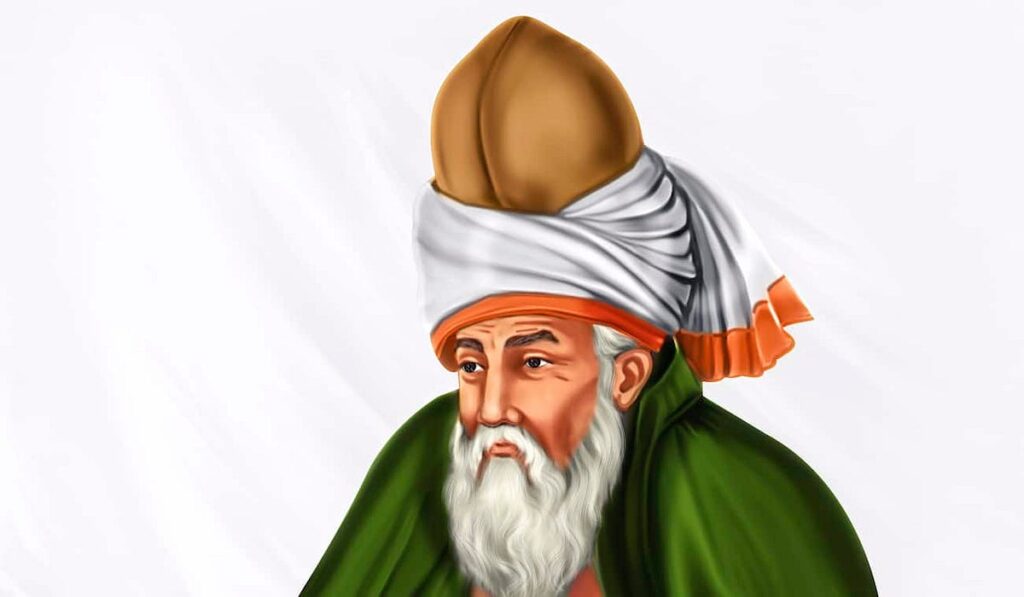Divine Love in the Poetry of Maulana Rumi
Maulana Jalaluddin Rumi (1207–1273), the great Persian Sufi poet, is one of the most profound voices of Ishq-e-Haqiqi (Divine Love). His poetry transcends time, offering wisdom on love, spirituality, and the journey of the soul toward God. For Rumi, love was not just an emotion but the very essence of existence—the force that unites the lover (seeker) with the Beloved (God).
The Fire of Divine Love
Rumi describes love as an all-consuming fire that burns away the ego and purifies the soul. In his famous verses, he says:
“Ishq aamad, ishq raft,
Ishq khod amad be raft.”
(Love came, Love left,
But in truth, Love never left at all.)
Here, Rumi expresses that Divine Love is eternal—it may seem to come and go, but in reality, it is always present in the heart of the seeker.
In another verse, he writes:
“Ishq ast, ke baqi mibaadad,
Juz ishq, har che mibini, hameh fanast.”
(Only love remains,
Everything else you see is perishable.)
For Rumi, everything in the material world is temporary, but love is eternal because it is a reflection of the Divine.
Union with the Beloved (God)
In Sufism, the relationship between the seeker and God is often likened to a lover yearning for their beloved. Rumi’s poetry is filled with this longing:
“Baz aay, baz aay, har ancha hasti baz aay,
Gar kafir o gabr o but-parasti baz aay.”
(Come, come, whoever you are, come again,
Even if you are an unbeliever, a fire-worshipper, or an idolater, come again.)
Rumi teaches that God’s love is unconditional. No matter how lost or sinful one may feel, there is always a path back to the Divine. This invitation to love is open to all, regardless of their background or beliefs.
The Dance of Love – Whirling Dervishes
One of the most famous symbols of Rumi’s legacy is the whirling dervishes, a mystical dance known as Sama. This dance represents the soul’s journey toward divine union. As the dervishes spin, they let go of their ego and surrender to the rhythm of love. Rumi believed that movement and music were powerful tools to connect with God.
He writes:
“Listen to the reed flute, how it tells a tale of separation,
Ever since I was cut from the reed bed, I have been crying for my return.”
Here, the flute represents the soul, and the reed bed symbolizes the Divine. Just as the flute longs to return to its source, so does the soul yearn for God.
The End of the Journey: Love is the Answer
In the end, Rumi’s message is simple yet profound: Love is the path, the journey, and the destination. He reminds us that love is not just a human emotion—it is a divine force that connects us to the eternal.
He beautifully sums it up:
“Ishq ra az ishq meejuoy, Ishq ra az ishq meeab.”
(Seek love through love itself,
Only through love will you find love.)
Maulana Rumi’s poetry continues to inspire seekers of truth, reminding us that in the depths of love, we find God.

